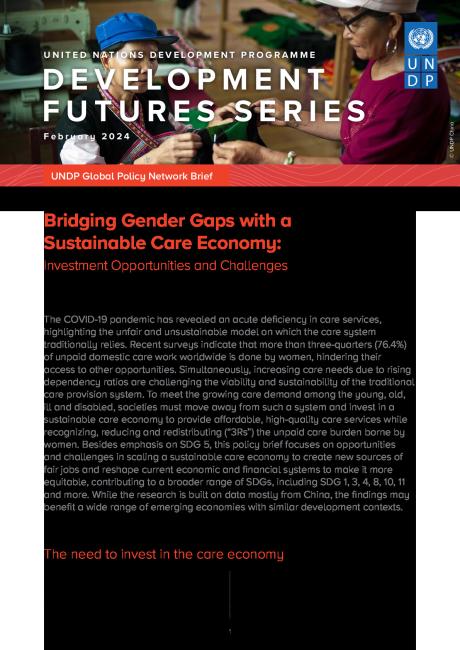UNDP: The COVID-19 pandemic has revealed an acute deficiency in care services, highlighting the unfair and unsustainable model on which the care system traditionally relies. Recent surveys indicate that more than three quarters (76.4%) of unpaid domestic care work worldwide is done by women, hindering their access to other opportunities. Simultaneously, increasing care needs due to rising dependency ratios are challenging the viability and sustainability of the traditional care provision system. To meet the growing care demand among the young, old, ill and disabled, societies must move away from such a system and invest in a sustainable care economy to provide affordable, high-quality care services while recognizing, reducing and redistributing (“3Rs”) the unpaid care burden borne by women.
Besides emphasis on SDG 5, this policy brief focuses on opportunities and challenges in scaling a sustainable care economy to create new sources of fair jobs and reshape current economic and financial systems to make it more equitable, contributing to a broader range of SDGs, including SDG 1, 3, 4, 8, 10, 11 and more. While the research is built on data mostly from China, the findings may benefit a wide range of emerging economies with similar development contexts.
